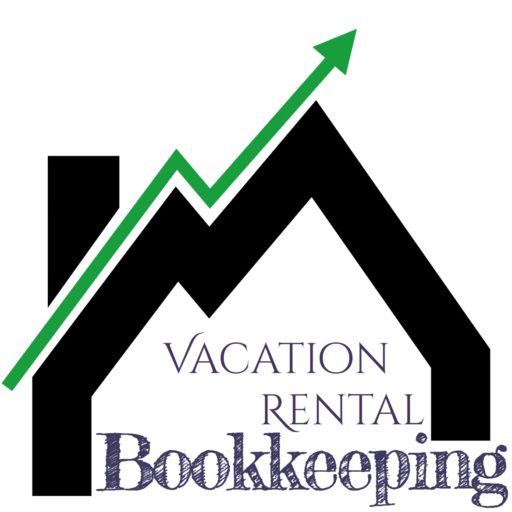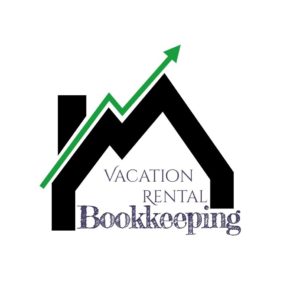Ready to set up a system to keep track of your short-term rental business’s finances? Here are a few thoughts to consider about some of the more popular choices.
Spreadsheets
Pros

- They are easier to understand for those who do not have an accounting background.
- Income and expenses can easily be separated for each property.
- You may be able to copy and paste some data if your bank provides a CSV export.
Cons
- Usually, data must be entered manually which greatly increases the risk of errors.
- Reconciling your spreadsheets with the bank records is very difficult. If reconciling is not completed regularly, transactions will likely be missing from your records, which means you may miss tax deductions or you may fail to claim the correct amount of income.
- Preparing the financial reports that are necessary to evaluate the performance of your business is quite frustrating and arduous. You may be spending hours typing in data, but still not have the data necessary to properly evaluate your financial performance.
- Handling guest booking deposits can be troublesome. When you are paid several months in advance for a booking, you need a way to keep this money from being spent until the guest arrives. Generally, this money is also not claimed as income until the guest checks in. Keeping track of these transactions are never easy, but they can be especially difficult when using spreadsheets.
Vacation Rental Management Apps
Pros
- Booking details often flow directly from the booking channel into the accounting module. This great feature could save you hours since you do not have to find all this information from several sources and enter it manually. There will also be much less opportunity for mistakes since the data is directly transferred.
- Some management apps will help you keep track of how much of your bank account funds consist of guest booking deposits and security deposits. This great advantage can help you make sure those funds are not spent since they do not belong to you.
- Many apps provide at least some financial reporting.
- If you are a property manager, you may be able to use the app to produce monthly statements for your property owners.
Cons
- Most apps do not have automatic bank feeds. While booking details may feed into the accounting module, all expenses that go through your bank account will have to be entered one at a time in most systems. This creates more work for you and introduces the possibility of typing errors, omissions, or duplicate entries.
- Financial details for bookings may not be correct. Processing fees are often charged by third parties, therefore, the amount that the booking channel says you received may not be the amount that was deposited into your bank account. If these amounts do not match, bank reconciliation could become especially challenging.
- Because apps are generally “one-size-fits-all,” they may not fit the way you operate. For example, you may use two bank accounts, a PayPal account, and a credit card account, but the management app is set up for only one bank account. Just make sure you give the app a test run before you sign on completely to make sure you know how much work will be involved and whether it will accomplish your goals.
Small Business Accounting Software (QuickBooks, Xero, etc.)
Pros
- All income and expenses automatically flow from your bank into the accounting software where you can categorize and record them. These bank feeds save you time, eliminate errors from manual entry, and ensure the proper recording of all transactions. They also make it much easier to keep your bank and credit card accounts reconciled.
- Dedicated accounting software is significantly more flexible, which means it can be customized to fit the way you operate your business. You can have as many bank accounts as you like. You can include any other types of income you may have that are not tied directly to rental bookings.
- Many financial reports can be automatically produced in these software systems. You will have access to the same kinds of reporting that other small business owners use. You will also be able to customize the reports to fit your needs.
- Accounting software can correctly classify more complicated transactions like booking deposits, security deposits, lodging taxes, mortgage payments, and capital improvements.
- Financial professionals like CPA’s, financial advisors, and tax preparers are familiar with these software applications, but likely will not be familiar with specialized apps or custom spreadsheets.
Cons
- General accounting software is designed to be customized for many kinds of small businesses. There is a considerable amount of learning and set-up necessary to customize these general programs for a short-term rental business. Some knowledge of double entry accounting is necessary by you or by the person helping you set up your system to ensure it is set up properly.
- The automation built into these software systems can cause problems if you are not careful. Often, the software attempts to ‘guess’ how a particular bank transaction should be categorized. Sometimes these guesses will be good, and other times they will be wrong. If incorrect suggestions are accepted for one reason or another, there is potential for chaos in the bookkeeping. What’s more, the software will remember which suggestions were accepted and suggest it again the next time. Especially in the beginning stages, it is very important to make sure you have a good set-up and are correctly categorizing the transactions.
- Financial details for bookings cannot be directly fed into standard accounting software platforms. The overall payouts from booking channels will flow into the software via the bank feeds, but extra measures will need to be taken to determine which property the payout belongs to and to separate the total into rent, cleaning fees, tax, security deposit, etc.
- If you are a property manager, you will not be able to use the general accounting software to produce monthly statements for your owners.
- While these software platforms are best suited to handle complicated transactions like booking deposits, security deposits, lodging taxes, and capital improvements to properties, knowing how to enter these transactions properly will require some knowledge of general accounting procedures.
Since each bookkeeping system has definite advantages and disadvantages, you will need to carefully evaluate your needs, time available, and budget in order to make the best decision. Many vacation rental business owners currently use a management app and either spreadsheets or accounting software to get all the benefits they desire. Hopefully, in the near future, someone will design an amazing new system that will do it all, until then, choose knowledgeably and deliberately.
About Vacation Rental Bookkeeping
Ryan Gallagher is a virtual bookkeeper who specializes in providing accounting services to short-term rental owners and managers. He strives to take the burden of bookkeeping off business owners as well as help them stay on top of their finances, set and meet goals, and make their rentals the best they can be. Contact Ryan directly to see how he can help your business.



